Bashorun J.K. Randle, a former President of the Institute of the Chartered Accountants of Nigeria (ICAN), has taken a swipe at the previous and current administrations in Lagos State for turning the hitherto blissful, serene and debt-free Lagos into second-worst city to live in among 172 cities worldwide.
Randle, who said he was in total shock when Lagos was slagged off on several international media as the worst city in the world to live and by extension the dirtiest capital city, however, slammed the Gov. Babajide Sanwo-Olu administration for what he called its feeble response to the ratings.
He rolled out a statement in response to Sanwo-Olu’s visit to the meetings at the ongoing 77th General Assembly of the United Nations in New York, U.S.
The article titled,“Cry Havoc At The United Nations (Grime, Ruin & Remnants) Part I’’ was obtained by Persecondnews.
The nation’s commercial capital now proudly tagged the “Centre of Excellence’’ has become a huge slum with poor living conditions for humans, according to according to the Economic Intelligence Unit (EIU) in its 2022 ranking of the world’s most livable cities.
“The response by the government has been somewhat feeble. Could it be that they do not care or they are not bothered by the seriousness of such a grave indictment ? ’’ Randle asked.
Lagos, the former Nigeria’s capital, was ranked 171st of the 172 countries ranked by the EIU, scoring highly on all five metrics: education, healthcare, culture and environment, stability and infrastructure.
With a relatively low score of 32.2 per cent, Lagos was just a little above Syria’s war-torn capital, Damascus, and a place behind Libya’s Tripoli. Both cities are hotbeds of wars, conflicts and terrorism.
The other cities in the bottom 10 are Karachi, the largest city in Pakistan, and Algiers in Algeria. Others are Port Moresby, Dhaka, Harare, Doula and Tehran, the capital of Iran.
Lagos scored very low in all the five metrics used to assess an individual’s lifestyle. On the stability metric, Lagos scored 20 per cent, the same point as Damascus.
Under the healthcare category, the city scored 20.8 per cent, the same point it got last year.
For culture and environment, Lagos finished with 44.9 per cent while on education metric, the city scored 25 per cent.
Nigeria’s former capital maintained 46.4 per cent for the infrastructure category.
Over the last five years, Lagos’ position remained largely at the bottom of the EIU liveability ranking.
In 2021, Nigeria’s largest city was ranked the second worst city to live in after Damascus.
Due to the Covid-19 pandemic, the EIU did not release a liveability ranking in 2020.
However, in 2019, Lagos was again the least liveable city in the world after Damascus.
In 2018, Nigeria’s commercial nerve centre became the third worst city to live in among 140 cities worldwide.
In 2017, Lagos fell again to the second worst liveable city.
Admittedly, the Lagos State Environmental Protection Agency (LASEPA) in August this year painted a damning level of pollution in the state, disclosing that 22,500 children died from air pollution in the state in 2021.
Speaking on the sidelines of of the official kick-off of the “EKO Clean Air” project in Lagos, the General Manager of LASEPA, Dr Dolapo Fasawe, disclosed that the figure was 75 per cent of 30,000 people who died in 2021 in the state due to the bad environment.
“Upon resumption, the governor `prioritised’ health and the environment in the administration’s THEMES agenda because there is no good health without a good environment.’’
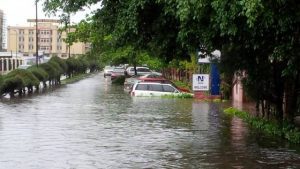
Pointing out that Lekki today has become a huge slum complete with drugs, crime and prostitution, Randle recounted his experiences: “As I drive down Ikate, all I see are buildings mostly built within the last 10 years in varying states of disrepair and desolation. It is sad and annoying.
“Built in clusters of demonic encircling, some already sinking with walls painted in green algae coming out from poor plumbing, you begin to wonder what really drives this tripartite alliance of wickedness.
“Lekki is gone. The flooding is crazy as a result of terrible planning. No drainage and where you find some, they are blocked. Boreholes opened near sewage pits; we are just joking with bubonic plague. If God is not with us, the epidemic Lekki will foster in Africa will not be a child’s play.
“Now we have begun to see a movement back to Victoria Island and Ikoyi. The new rich who still have their wealth are migrating back as they see the encroachment of slum lifestyle on them. So now those who live in proper Ikoyi are saying, “I don’t go to Lekki for anything,” and Lekki mumu people are still saying, “I don’t go to the mainland for anything.”
“Mbok, stay in your slum and smell your opened cesspits and waddle through your floods and watch your daughters being pimped out and your sons fall into the hands of drug lords. Give me my Shomolu any day.’’
Randle also stated:“Regardless, we must confront our moment of truth. To make matters worse an American visitor to our beloved city slammed it (and its prime locations – Ikoyi; Victoria Island; Banana Island; Park View Estate; Snake Island; Monkey Island; Crocodile Island; etc) as the most expensive slums in the world.
“In addition, the traffic is chaotic and the roads are an advertisement for urban guerrilla warfare with potholes as the arena for combat between motorists and motor-cycles of various categories ranging from the “Danfos” (rickety buses) “Okadas” (two-wheel motorcycles); “Keke Marwa” (tricycles) and vehicles meant for goods but carrying human species (mostly labourers) instead.
“The real Kings of the road are the tankers who are overladen with cement, fuel, water or whatever. They feel entitled to park anywhere without let or hindrance. Every now and again, they empty their bowels and crush other vehicles or passers-by. Sometimes, they fall off bridges. Thrown into the mix are the siren-blaring government officials, military and businessmen (masters of the universe).
“We must not forget the cash-laden bullion vans. Every day and night, it is a feisty no holds barred struggle for survival in jungle warfare. The ultimate supreme claim to preferential and deferential treatment is the “articulated” lorry belching smoke and poison.
“Rather than press the mute button, it is time to carry the battle to the enemy. It is our last great hope. We are dealing with monumental human devastation and egregious desertion. To start with, we must necessarily evaluate the prospects for a truce or a peace accord – between the oppressors and the oppressed (victims).
“The alternative is to disarm the oppressor for whom suppression is the weapon of first choice with intimidation as the ammunition.
“We are right on the cliff edge of civilization. In the ravine below is the field of anarchy, chaos and vanquished hope. The elderly and the vulnerable count for nothing when the battle cry insists that might is right. It is war crimes galore without declaration of war.
“We have willy-nilly walked through an unlocked door into a fire fight of rage and fury. Unprovoked threats have overwhelmed unwarranted invasion. Only more mendacity and sheer vindictiveness are on offer as derisory options.’’
Still criticizing the parlous state of Lagos, Randle stated: “We must throw the “Omolanke” [four-wheel cart] and wheelbarrows which for all we know may be ferrying arms and ammunition beneath the bricks and mortar piled sky high, into the mix as they regally and majestically compete for space on the highways and side streets.
“While gazing in awe there will be plenty of time and energy for reflection. We have chosen to confuse sacrifice with cowardice and empathy with denial. Regardless of the feeble exertions of the overladen refuse disposal vans and intimidating compactors which ironically lament their own misuse and starvation, we are confronted with the spectre of grievous social wrong plus pompous lies and empty vanities.’’
Randle, who is the Chairman, J.K. Randle Professional Services, Lagos, pointed out: “The flashing billboards advertise the squalid cruelty of fryants who have mastered the black arts of tantalization – promise everything but deliver nothing.
“We are compelled to endure the worst possible time where anger, grief and rage dictate the tune. We are utterly mortified by the prospect of a city that is not much different from an active war zone. Our steadfast prayer is that the enemy is not provoked to the point of exercising the nuclear option; and thereby blow everything up.
“It is as frightening as it is terrifying. The magnitude of our calamity is beyond exaggeration. In order to survive, we must become invincible and invisible. Our detractors have become even more irritating, insulting, aggressive, greedy, calculating and vindictive. Mendacity and subterfuge reign supreme.
“As we seek to negotiate with friends and foes alike to switch gears from recurring conflict to peace, harmony and equilibrium, we must recognize that changes in circumstances require changes in strategy.’’
Recalling the heydays in Lagos, Randle also said: “In this seedy and claustrophobic cauldron of grime, filth, ruin and remnants we nevertheless have to deploy our fierce and feisty navigational skills.
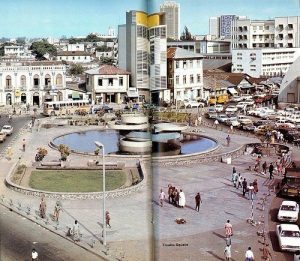
“There was no such requirement when in 1952, the same Lagos won the first prize in the British Commonwealth as the city with the cleanest water. It was Dr. Ladipo Oluwole (an old boy of King’s College, Lagos) who travelled all the way to Australia to collect the glittering trophy and the generous accolades plus the inspirational encomiums.
“But back then, the population of Lagos was just a little more than two hundred and fifty thousand. Now, we are twenty-million during the day and twenty-five million at night (without including the living dead!!) Besides, in the 1950’s Lagos was blissful, serene and had no debts.’’
“In addition, fresh air was freely available to both the rich and poor who had no qualms about walking up and down the Marina just to enjoy the breeze. Now, the air is foul and the debts keep mounting. Officially, Lagos owes N780.5 billion, according to the data published by the Debt Management Office.
“The mandate of the Debt Management Office does not extend to hidden debts or hidden doubts not to talk of hidden depths,’’ he stressed.
On lack of data by government on critical sectors of human lives, Randle said there is an acute and embarrassing shortage of data regarding how many homes are without drinking water.
“It is the same with electricity which has been supplanted by 24/7 (twenty-four seven) non-stop generators pumping and belching lethal fumes into the hitherto fresh air and unpolluted eco-system.
“Even more nightmarish are the data on crimes – ranging from rape to fraud, robbery, kidnapping, money rituals and murder to Ponzi schemes as well as impersonation (the living pretending to be dead and vice-versa !!). Our worst nightmare has metamorphosed into our new reality.’’
Randle, and ex- Chairman of KPMG Nigeria and Africa Region, accused the Lagos State Government of “persecuting, cheating and annexing’’ the Randle family properties across the state without compensation.
According to him, the government has unleashed “terror and terrorism’’ on the J.K. Randle family dating back to 1969.
“In the meantime, the government has unleashed terror and terrorism on the J.K. Randle family. It commenced with stealth in 1969 and gathered momentum in 1975 with the compulsory acquisition of vast tracts of our land (286.4 Hectares). Here we are, almost fifty years afterwards we have not received a dime in compensation.
“It is prime location which stretches over Alausa / Agidingbi / Ikeja. In Surulere, the “Shell Club” (Adeniran Ogunsanya Street) and the adjoining Nigerian Ports Authority Sports Grounds have been the target of government intrigue and malfeasance. Time and space will not permit us to dwell on the shenanigans over Shell Club.
“However, as regards Nigerian Ports Authority Sports Grounds it was a lease granted by my late father, Chief J.K. Randle and my uncle, Chief Romanes Adewale Randle to Nigerian Ports Authority (NPA) which the tenant/lessee has hijacked and converted into its own property.
“The matter has dragged on in court for several decades. Where government has surpassed itself is with regard to our family land at Onikan, Lagos. It was my grandfather, Dr. J.K. Randle who bequeathed the garden (“Love Garden”) when he died in 1928 “…….to the people of Lagos for their peaceful enjoyment and recreation”. He left it in the custody of Lagos Town Council which was subsequently replaced by Lagos City Council (now Lagos Island Local Government). He provided generous funds in his estate for the maintenance of the garden.
“During the colonial government, the garden was in pristine condition. The flowers bloomed; and both the rich and the poor were welcome to savour the soothing balm provided by nature in a bold endeavour to connect us with humanity and civilization while lovers, both young and old wandered freely literally “In The Garden of Love” – exchanging furtive kisses, swapping love letters and the occasional outburst of everlasting love, unflinching devotion and eternal fidelity.
“The Colonial Government (British) kept faith but no sooner after their departure in 1960, the funds were purloined or diverted by government officials into private pockets. Neglect and decline followed in rapid succession. By the time the military struck on 15th January 1966, the garden was a shadow of its old self.
“Subsequently, the military acquired it ostensibly for “public purpose” with the Land Use Act of 1978 as cover but promptly handed it over to a private organisation – Musical Society of Nigeria [MUSON]. It is now known as the Muson Centre.”
“Of course, both the law and morality have combined to point the way to justice and fairness – if the garden would no longer be used for the purpose for which it was donated equity demands that it should be returned to the Randle family.
“As for the adjacent property – the Dr. J.K. Randle Swimming Pool that was where several generations of Lagosians learnt how to swim. It bears repetition that my grandfather graduated from Edinburgh University, United Kingdom, in Medicine with a Gold Medal in surgery in 1888. Thereafter, he joined the Colonial Service but resigned on account of racial discrimination. White doctors who were his juniors were being paid higher salaries!!’’ he explained.












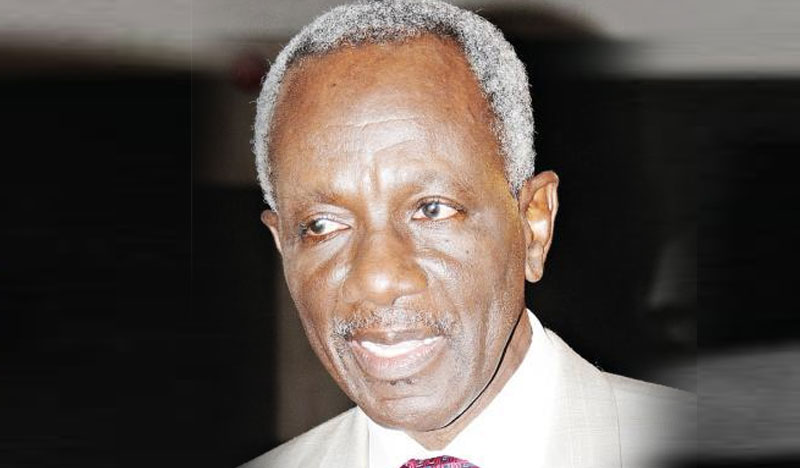

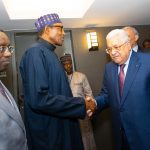
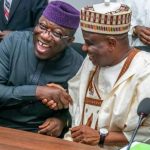







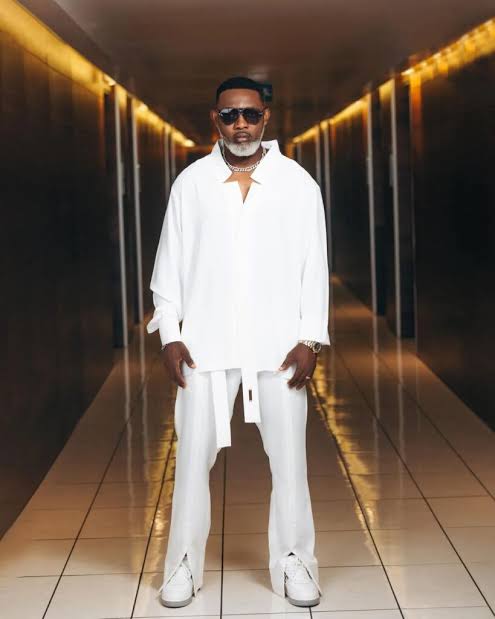
Leave a comment